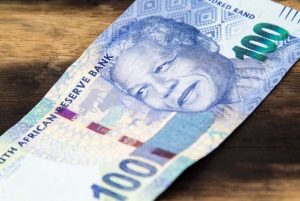STERLING SPIRALS AS INVESTORS FRET OVER UK BUDGET, GILTS SELL OFF
the pound fell on thursday, set for its worst two-day loss against the euro in two years, a day after new british finance minister rachel reeves announced a tax-and-spend budget that investors worried would reignite inflation and weigh on growth. sterling was heading for a two-day loss of 0.7% against the euro, the largest since september 2022, when then-prime minister liz truss unleashed turmoil on uk financial markets with budget plans for billions of pounds in unfunded tax cuts. reeves’ budget on wednesday contained the biggest tax increases since 1993 as she sought to repair britain’s public services, and she also changed the government’s fiscal rules to increase borrowing for long-term investment to boost the economy. giving the euro an extra boost against the pound was data on wednesday that showed a surprise pick-up in the german economy, which has flatlined for months, while the dollar got a lift from yet more evidence on thursday of the strength of the u.s. economy. “a lot of news over the last day or two from europe and the u.s. and so it’s perhaps more difficult to remove just the uk effect from that, so it makes the movements a little more opaque,” rabobank currency strategist jane foley said “But we can certainly see that this budget has had a large effect,” she said. The Office for Budget Responsibility (OBR), whose forecasts underpin British government budgets, now expects inflation will average 2.6% next year, compared with a previous 1.5% forecast. A sell-off in UK government bonds accelerated on Thursday, sending two-year gilt yields up by over 20 basis points to their highest since May. Money markets see an 80% chance that the BoE will cut interest rates by 25 basis points at its Nov. 7 meeting, but traders are now betting on fewer than four rate cuts over the next year from nearly five quarter-point reductions before the budget. Against the dollar, sterling fell 0.7% on the day to $1.28715. The
SOUTH AFRICAN RAND SLIPS AS BUDGET SPEECH FAILS TO IMPRESS
The South African rand slipped onWednesday as akeenly awaited budget speech by the finance minister failed to impress investors. At 1551 GMT, the rand traded at 17.6825 againstthe U.S. dollar ZAR=D3, down about 0.2% fromits previous close. South Africa’s government on Wednesdayforecast wider budget deficits and higher debt over the next three years even as growth prospects improved due to better electricity supply. The mid-term budget was thefirst under a coalition government formed after the African National Congress party lost its majority. The coalition government has committed to lifting economic growth and making progress with reforms, boosting investor confidence and fuellinga rally in the rand and local currency debt. “The fiscal path set out in the MTBPS (medium-term budget policy statement) probably fell short of the market’s relatively upbeat expectations,” said Nedbank analysts in a research note. Economists polled by Reuters hadpredicted Finance Minister Enoch Godongwana will announce a lower 2024/25 budget deficit estimate than in February’s main budget. In the stock market, the Top-40 .JTOPI index closed 0.61% lower. South Africa’s benchmark 2030 government bond ZAR2030= fell marginally, as the yield rose 1.5basis points to 9.285%.

DOLLAR REBOUNDS AFTER WEAK JOBS DATA; TRADERS EYE US ELECTION
The dollar rose against the euro and rebounded against most major currencies on Friday after traders digested data showing U.S. job growth slowed sharply in October amid disruptions from hurricanes and strike action by aerospace factory workers. Nonfarm payrolls rose by 12,000 jobs after a downwardly revised 223,000 in September, the Labor Department’s Bureau of Labor Statistics said. Economists polled by Reuters had forecast October payrolls rising 113,000. The U.S. unemployment rate, however, held steady at 4.1%, offering assurance that the labor market remains on a solid footing. Hurricane Helene devastated the Southeast in late September and Hurricane Milton lashed Florida a week later. A total 41,400 new workers were on strike, including machinists at Boeing and Textron, an aircraft company, when employers were surveyed for October’s employment report. “The dollar index has fully recovered since this morning’s data release, shifting focus towards the uncertainty surrounding the upcoming election,” said Uto Shinohara, senior investment strategist at Mesirow in Chicago. “Current polls continue to depict the race as a toss-up, with a potential risk of delayed results, making next week a busy one, since the is also meeting just days later.” The subdued jobs report, he added, maintains the Fed’s trajectory for a 25-basis-point interest-rate cut this month. The euro was down 0.40% against the dollar at $1.084. The dollar index, which tracks the greenback against six major currencies, was up 0.36% at 104.24. “It’s important when looking at the downward revisions, especially that most of that wildly negative figure came in August rather than in September, so the picture for the end of the year still doesn’t seem too grisly,” said Helen Given, associate director of trading at Monex USA.

POUND SET FOR WORST WEEKLY LOSSES SINCE 2018 AFTER BUDGET JOLT
The pound stabilised on Friday after a volatile few sessions, but still headed for its longest stretch of weekly losses in nearly six years, as political and monetary uncertainty has prompted investors to favour the dollar lately. UK finance minister Rachel Reeves this week delivered her first budget since the Labour party came to power in July – a high-tax, high-spend and high-borrowing set of proposals that unnerved the British bond market and dented sterling. While the budget created nothing like the havoc of that in September 2022 of former Prime Minister Liz Truss, gilts have sold off, pushing up yields, while traders are betting on fewer UK rate cuts in the coming year as a result too. Both should in theory support the pound, but the prospect of even tighter British finances and the biggest tax burden in decades created concern about inflation and growth. “The market sees the heavy spending in the budget as possibly stagflationary, judging from the sharp rise in UK rates,” Saxo Bank analysts said. Sterling GBP=D3 was last up 0.1% at $1.2915, bringing the loss for the week to around 0.4%, set for a fifth consecutive weekly decline, the longest such stretch since December 2018. Against the euro EURGBP=D3 the pound was up 0.3% at 84.14 pence.The Office for Budget Responsibility (OBR), the projections of which underpin government budgets, said the economy was set to expand by 2.0% in 2025, up only slightly from a forecast of 1.9% made in March at the time of the previous Conservative government’s last budget, and it trimmed its growth forecasts further out. The OBR also projected UK inflation will average 2.6% in 2025, up from a previous forecast of 1.5% back in March. Employers have warned they will struggle to cope with the increase in social security contributions that form the lion’s share of the extra 40 billion pounds that Reeves plans to raise in tax, the biggest increase in a budget since 1993.
CANADIAN DOLLAR HITS 2-YEAR LOW ON U.S. ELECTION JITTERS
The Canadian dollar weakened to a two-year low against its U.S. counterpart on Friday as the greenback notched broad-based gains ahead of the U.S. presidential election and despite domestic data that showed factory activity growing at a faster pace. The loonie was trading 0.1% lower at 1.3950 to the U.S. dollar, or 71.68 U.S. cents, after touching its weakest intraday level since October 2022 at 1.3953. For the week, the currency was down 0.4%. “This looks to be a play with U.S. dollar bulls wanting to push this thing (USD-CAD) to the topside should the election result suggest it should go in that direction,” said Michael Goshko, senior market analyst at Convera Canada ULC. The loonie is expected to rebound against its U.S. counterpart in the coming year as lower borrowing costs boost the domestic economy but the result of Tuesday’s election could unsettle the outlook, a Reuters poll found. Republican candidate Donald Trump has proposed sweeping tariffs on imported goods. Canada sends about 75% of its exports to the United States. Analysts say that tariffs and other proposed measures could boost U.S. inflation, reducing prospects of Federal Reserve interest rate cuts. The U.S. dollar strengthened on Friday against a basket of major currencies. The S&P Global Canada Manufacturing Purchasing Managers’ Index (PMI) rose to its highest level in 20 months at 51.1 in October as production and employment picked up in anticipation of rising orders. The price of oil, one of Canada’s major exports, increased 0.6% to $69.68 a barrel on reports Iran was preparing a retaliatory

- CAPITALDIGEST MARKET REVIEW, 09/02/2026February 9, 2026
- CAPITALDIGEST DAILYNEWS, 09/02/2026February 9, 2026
- CAPITALDIGEST MARKET REVIEW, 02/02/2026February 2, 2026
Enter your email address for receiving valuable newsletters.
- CAPITALDIGEST MARKET REVIEW, 09/02/2026U.S. DOLLAR REBOUND TO BE CUT SHORT BY RATE CUT BETS, DOUBTS OVER FED INDEPENDENCE:...February 9, 2026
- CAPITALDIGEST DAILYNEWS, 09/02/2026TAXES, FUEL HIKE SLOW BUSINESS GROWTH IN JANUARY – NESG REPORT The report showed that...February 9, 2026
- CAPITALDIGEST MARKET REVIEW, 02/02/2026DOLLAR WEAKENS ACROSS THE BOARD AS YEN CLIMBS ON INTERVENTION RISK The dollar moved sharply...February 2, 2026












